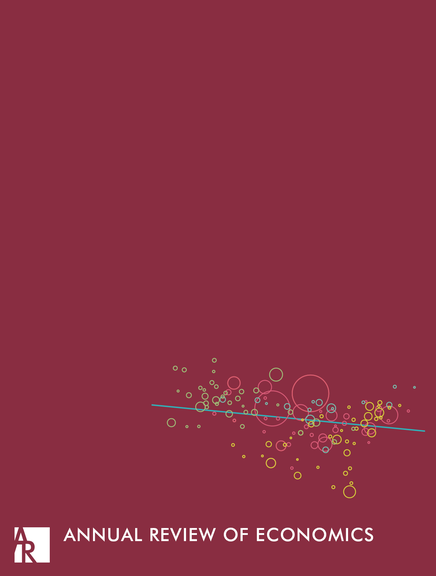关于机构的实验
IF 6.8
2区 经济学
Q1 ECONOMICS
引用次数: 0
摘要
制度是决定经济增长的关键因素,但制度变革的关键时刻并没有得到准确界定。例如,这种关键时刻往往是事后确定的,这就产生了几个方法论问题:对制度变革结果的选择;无法研究信念,而信念是协调的核心,因而也是制度变革的过程;无法进行实验以确定因果效应。我们认为,关键时刻是可以实时识别的,是对未来制度深感不确定的时刻。与这一概念相一致,所审查的论文(a) 研究了制度的变化,即游戏的基本规则;(b) 对可信的关键时刻进行了实时研究;(c) 使用实地实验来实现因果识别。我们还主张对未来制度的信念进行更系统的测量,以在关键时刻发生时对其进行识别,并提供概念的实证证明。考虑到民主倒退、国家脆弱性、气候变化和边缘化群体权利冲突等当代关键时刻的出现,这项工作迫在眉睫。本文章由计算机程序翻译,如有差异,请以英文原文为准。
Experiments About Institutions
Institutions are a key determinant of economic growth, but the critical junctures in which institutions can change are not precisely defined. For example, such junctures are often identified ex post, raising several methodological problems: a selection on the outcome of institutional change; an inability to study beliefs, which are central to coordination and thus the process of institutional change; and an inability to conduct experiments to identify causal effects. We argue that critical junctures are identifiable in real time as moments of deep uncertainty about future institutions. Consistent with this conception, the papers reviewed (a) examine changes to institutions, i.e., the fundamental rules of the game; (b) are real-time studies of plausible critical junctures; and (c) use field experiments to achieve causal identification. We also advocate for more systematic measurement of beliefs about future institutions to identify critical junctures as they happen and provide an empirical proof of concept. Such work is urgent given contemporary critical junctures arising from democratic backsliding, state fragility, climate change, and conflicts over the rights of the marginalized.
求助全文
通过发布文献求助,成功后即可免费获取论文全文。
去求助
来源期刊

Annual Review of Economics
ECONOMICS-
CiteScore
9.70
自引率
3.60%
发文量
34
期刊介绍:
The Annual Review of Economics covers significant developments in the field of economics, including macroeconomics and money; microeconomics, including economic psychology; international economics; public finance; health economics; education; economic growth and technological change; economic development; social economics, including culture, institutions, social interaction, and networks; game theory, political economy, and social choice; and more.
 求助内容:
求助内容: 应助结果提醒方式:
应助结果提醒方式:


